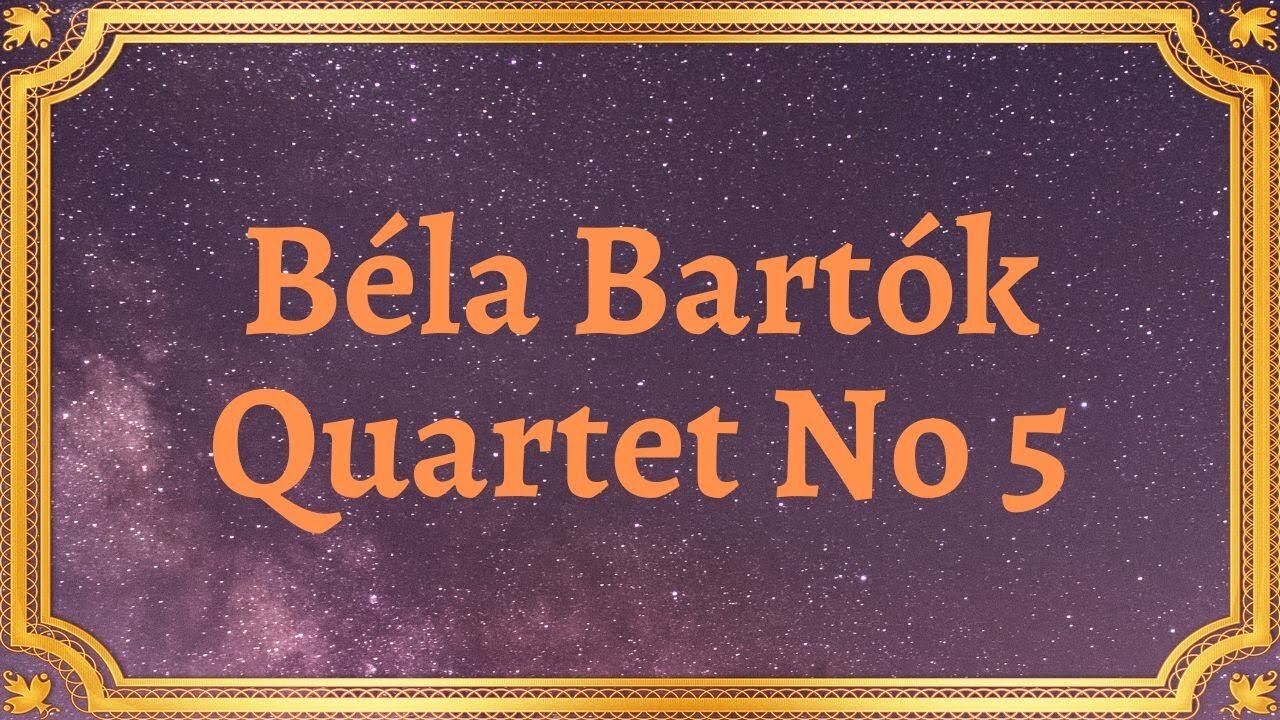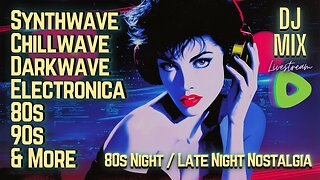Premium Only Content

Béla Bartók Quartet No 5
#BélaBartók, #QuartetNo5, #composition, #musicalcomplexity, #Hungarianmusic, #rhythmicchanges, #unconventionalharmonies, #stringquartet, #classicalmusic
Publication date 1950
Juilliard String Quartet
Béla Bartók wrote his Quartet No. 5 in 1934, and it is often referred to as one of the Hungarian composer's most challenging works. The piece consists of four movements that are distinctly different in character and structure, further highlighting Bartók's experimental nature.
The first movement, Allegro, begins with the viola opening with a series of interlocking phrases that are then echoed by the rest of the ensemble. The movement explores the melodic and harmonic possibilities of the four instruments, with each instrument taking turns to lead and accompany the others. The music is vigorous and rhythmic, yet fluid with abrupt tempo changes, creating a sense of tension and unpredictability.
The second movement, Adagio molto, is the slowest and most expressive section in the piece, emphasizing Bartók's use of folk music traditions. The melodic lines are simply stunning, with a unique blend of tonality, perfect for showcasing the depth of feeling in the music. The music feels like poetry in motion, conveying a sense of personal reflection that is both intense and moving.
The third movement, Scherzo: Alla bulgarese, is a fast and technically complex section of the quartet with multiple rhythmic changes. The Bulgarian folk dance-inspired rhythmically complex music is Bartók at his finest, and he further emphasizes polyphonic ideas by utilizing percussive and plucked effects in the ensemble.
The final movement, Finale: Allegro, is a clear showcase of Bartók's Hungarian roots, with the cello introducing the music in a folk rhythm that increases in complexity as the movement progresses. The music accelerates with the use of dazzling fingering techniques, generating a grand, majestic sound from the ensemble.
Béla Bartók's Quartet No. 5 stands out as one of the composer's most intricate and technically challenging works. The ensemble playing in the piece showcases Bartók's musical intelligence and experimentalism. Bartók's use of asymmetrical rhythms and unconventional harmonies contributes to the complexity of the music, creating a sense of unpredictability that is authentic and adventurous.
In conclusion, Bartók's Quartet No. 5 is a masterpiece of music composition both emotionally and intellectually. The diversity of musical styles and themes within each movement is Bartók's signature style, combining traditional Hungarian and Bulgarian music styles with more modern, experimental elements of musicality. It undoubtedly stands as one of the most important string quartet pieces in the 20th century's
You have the opportunity to support the channel https://destream.net/live/RadSiarAl/donate
-
 4:24
4:24
Classical music_Music Inspiration
1 month agoFrederic Chopin Fantasy-Impromptu in C-sharp minor, Op 66
831 -
 1:20:42
1:20:42
The Connect: With Johnny Mitchell
6 days ago $11.54 earnedThe Truth Behind The U.S. Invasion Of Venezuela: Ed Calderon Exposes American Regime Change Secrets
35.5K20 -
 2:10:18
2:10:18
FreshandFit
6 hours agoAfter Hours w/ Girls
128K35 -
 2:06:29
2:06:29
TimcastIRL
12 hours agoAirlines Cancel Over 700 Flights, Travel APOCALYPSE Is Now, Trump Says END FILIBUSTER | Timcast IRL
233K110 -
 9:02:44
9:02:44
SpartakusLIVE
17 hours agoTOXIC Solos on ARC Raiders || Friday Night HYPE - WZ or Redsec Later?
77.2K2 -
 2:15:42
2:15:42
TheSaltyCracker
9 hours agoWoke is DEAD ReeEEStream 11-07-25
123K216 -
 1:29:13
1:29:13
Sarah Westall
8 hours agoThe City of London: Infiltration, Intimidation & Centralized Power w/ Mike Harris
50.5K13 -
 10:14:18
10:14:18
Dr Disrespect
19 hours ago🔴LIVE - DR DISRESPECT - ARC RAIDERS - AGAINST ALL DANGER
202K26 -
 32:09
32:09
ThisIsDeLaCruz
1 day ago $6.23 earnedFalling In Reverse: Christian Thompson’s Stage Tech Revealed
44.5K8 -
 4:41:02
4:41:02
SynthTrax & DJ Cheezus Livestreams
1 day agoFriday Night Synthwave 80s 90s Electronica and more DJ MIX Livestream 80s Night / Late Night Nostalgia
52K5